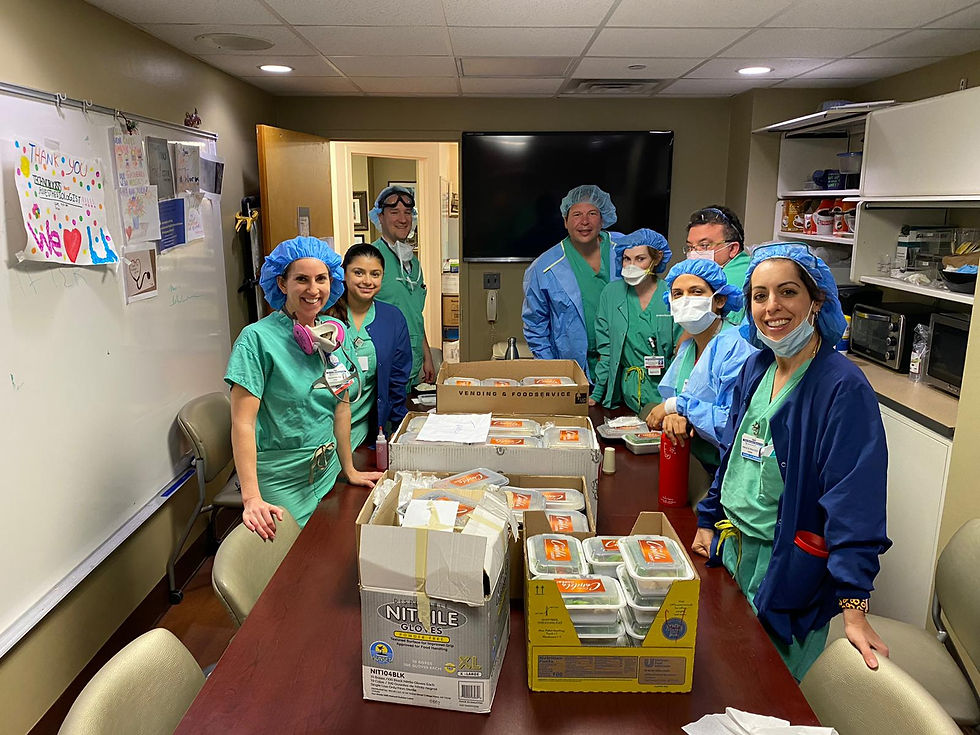Better day for me but...
- Daryl Fenio

- Apr 17, 2020
- 3 min read
After what was a very difficult day for me yesterday, feeling unprepared despite spending many hours trying to get a handle on learning the patients in the ICU, I decided I would start earlier this morning. I got up at 4 am, took a shower and headed to the hospital.

I arrived at 5 am and began to reevaluate all the patients I had tried to learn the day before. I settled in and again reviewed everything from the time they arrived at the hospital, the patients clinical course, labs, chest X-rays. medications and other doctors that had been consulted to help with specialized care. By 7am I felt prepared to round with the ICU team that includes, doctors, residents and nurses. I felt I knew these patients as completely as possible. For instance, the 62 year old nurse who had arrived at the hospital with her husband, both in respiratory distress, both intubated within days and whose husbands died with 24 hours after intubation. She does not know her husband has died and remains critically ill. Or the 63 year old man, previously healthy, whose wife calls every night to have the phone held to his ear so that she can try to encourage him and tell him she loves him. Or the 43 year old man, who likely will not survive, whose family has provided meals for the health care team multiple times. Its not that I think knowing these details will help me make better medical decisions, but it makes me feel I have been thorough enough that I am less likely to miss something or make a mistake. I'm not sure if that makes sense to those that are reading this.
When we round as a team we make a plan for the day for each patient. We review labs, address problems the patient may be having, discuss changes to the medical management of the patient including, antibiotics that need to be started or stopped, tests that need to be performed to guide treatment, changes that need to be made to mechanical ventilation to move toward getting the patient off the ventilator, etc. Sometimes a patient is so tenuous that we make no changes fearing the patient may not tolerate any change. And then we repeat this again and a again to review how a patient is tolerating any changes we've made, revise those changes and followup on any tests that have been performed.
Today as we were performing these duties, a 74 year old man, with many prior medical problems before his COVID infection, heart rate starts to slow. The physician that has been primarily responsible for his care is called to his bedside. Most of our team comes over to talk about what to do. His family has been in the throws of despair throughout his hospitalization and have been unable to come to grips with the idea he is likely going to die, despite many conversations often multiple times a day. He has been on maximal care for over two weeks with no improvement. We discuss how to try to keep him alive as we attempt to contact the family. While his doctor talks to the family, I hold his hand and talk to him, I tell him its ok, we know how hard he has fought and that his family will be ok. A priest is called and last rites are given ten minutes before he passes. What haunts me the most is the people who love these patients can't be with them when they die. We do our best, its happening all over, in hospitals across our country, doctors, nurses, residents, standing in for families at the bedsides of patients. But what about the families? I can't imagine. That's all for now.






Comments